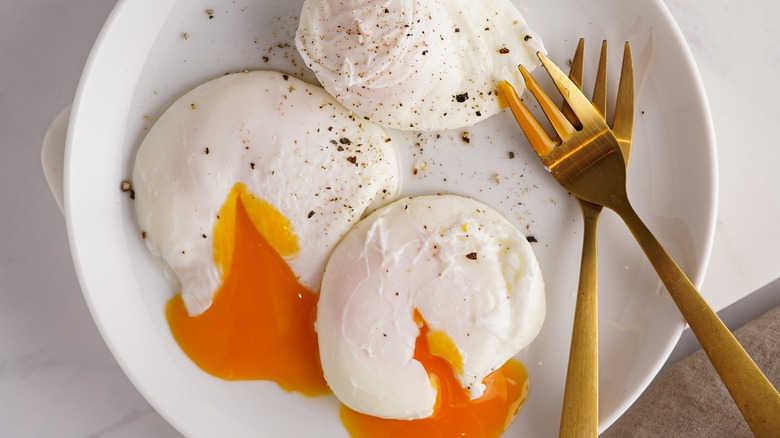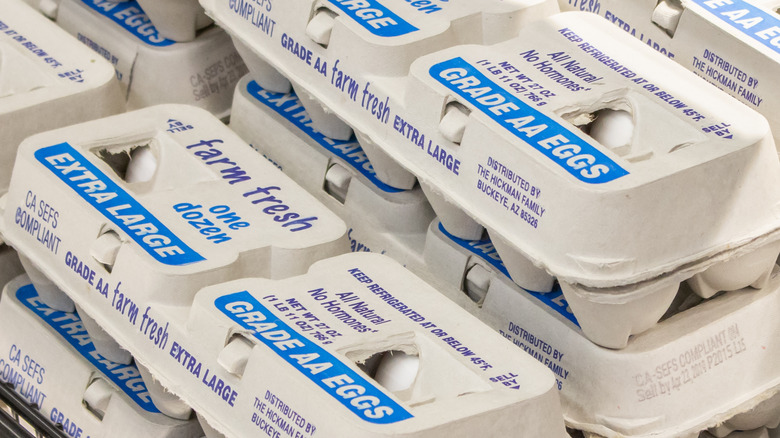For Perfect Poached Eggs, Look For This Specific Egg Label
Cooking a perfect poached egg may be effortless for some, but there's always a risk of encountering problems, no matter how skilled you are. You could end up with an unwanted addition of egg shells, or perhaps the egg could defiantly glue itself to the bottom of the pan. Worst of all, you might accidentally pop the delicate yolk, creating a tidal surge of lost yellow yumminess.
There are a couple of things you can do when buying eggs at a store that will help you create poached eggs so beautiful, they will take Instagram by storm (even more so than endless dog photos). Your main goal will need to be obtaining the freshest eggs possible — these have thick whites surrounding the yolks, allowing a satisfyingly round yolk to be maintained during cooking. The best way to do this is to look for gradings showcasing the quality of eggs — AA, A, or B. Let's take a look at which grade of egg is best for poaching, and which one you should definitely avoid.
Choosing the right grade is important for perfectly poached eggs
Egg gradings are awarded by the USDA, which uses two processes to judge the quality of eggs, including tiny probes that gently tap the shells — a high-pitched ring means that the shell is undamaged, but a thump proves that there's a crack. Additionally, the inside of eggs are subjected to bright light to assess the firmness of yolks, the amount of white, and how much space there is between the white and the bottom of the egg shell (less space is better).
Grade AA is given to the highest quality eggs, meaning they have thick, firm whites, large, round yolks, and shells without blemishes or damage. Grade A eggs are similar, but their whites aren't quite as firm. Either of these grades should be sought for your perfect poached egg recipe because they allow your meal to achieve the optimum appearance (although it may be easier to find grade A eggs because these are more widely stocked). Companies aren't obligated to have their eggs graded, so not all egg cartons will display a rating label.
Grade B eggs aren't great for poaching because their yolks are flat and the whites can be watery and thin. These eggs might also have shells with marks on them, and generally won't be found in grocery stores because of their low quality. So if you plan to prepare poached eggs for breakfast, make sure you stick with the top-graded options.

